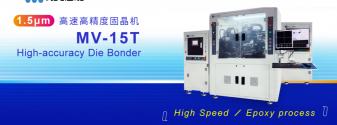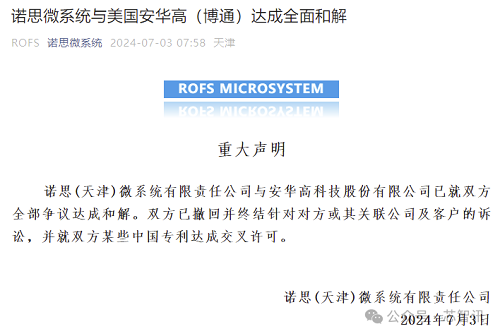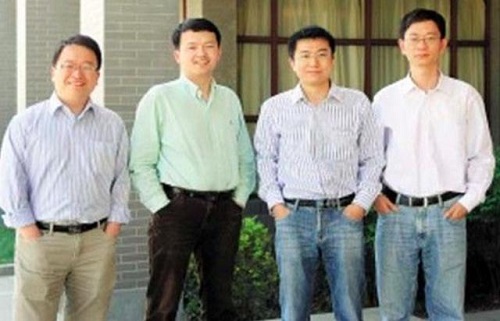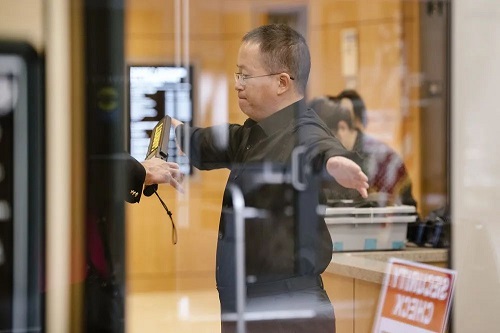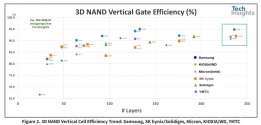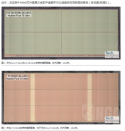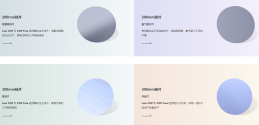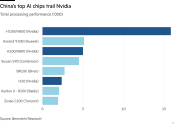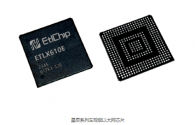Tianjin North and Avago reach settlement after 9 years of dispute
On the morning of July 3, North Microsystems (Tianjin) Co., Ltd. (hereinafter referred to as "Tianjin North") and Avago Technologies Co., Ltd. (which merged with Broadcom many years ago) have reached a settlement on all disputes between the two parties. The two parties have withdrawn and terminated the lawsuits against each other or its affiliates and customers, and reached a cross-license on certain Chinese patents of both parties. So far, the 9-year-long feud between the two parties has come to an end.
According to the information, Tianjin North was established in 2011 and is the first IDM company in China to build its own factory to produce FBAR filters. When the global FBAR filter market was just starting, Tianjin North had already built its own factory in 2014 to mass-produce the first generation of products.
The founders of Tianjin North are Zhang Hao and Pang Wei, who are college classmates. Among them, Pang Wei was born in 1980. At the age of 16, he became the top scorer in the Chongqing College Entrance Examination and entered Tsinghua University. After graduating from Tsinghua in 2001, he went to the University of Southern California for a master's and doctoral degree. During his studies, he mainly engaged in academic research related to FBAR. Zhang Hao was born in 1978 and received a Ph.D. in electrical engineering from the University of Southern California. He has since worked at RF device giants Avago and Skyworks.
In 2009, Tianjin University brought Pang Wei and Zhang Hao back to China through talent introduction channels. At that time, Pang Wei, 29, and Zhang Hao, 31, became the youngest professors at Tianjin University.
Subsequently, with the support of Tianjin University, the two began to develop domestic FBAR filters, and Tianjin North was officially established in 2011. Subsequently, Tianjin North entered a period of rapid development.
However, just as Tianjin North built its own factory to produce FBAR filters, in 2015, Zhang Hao, who went to the United States to participate in an event, was arrested by the United States on the charge of "conspiracy to engage in economic espionage" and was convicted of stealing trade secrets and economic espionage by the San Jose Court in California in June 2020. The reason why Zhang Hao was arrested was due to Avago's accusation.
As early as the end of 2011, Rich Ruby, technical director of Avago, was invited to visit Tianjin North Laboratory. An early employee of Tianjin North recalled: "Rich Ruby clearly stated after entering the laboratory that North's products were exactly the same as Avago's, and believed that Tianjin North had stolen trade secrets." Obviously, in the eyes of Avago executives, Zhang Hao, the founder of Tianjin North, who had worked at Avago, had stolen Avago's trade secrets.
In 2015, after three years of investigation by the FBI, Avago sued North in the United States and sent a lawyer's letter to Tianjin North. After receiving the lawyer's letter, Tianjin North should have guarded against judicial risks from the United States. But Zhang Hao did not accept the company's dissuasion at the time, but insisted on going to the United States and was eventually arrested in Los Angeles.
So far, due to the infringement risk of the products produced, many customers terminated their cooperation with Tianjin North, and the company even stopped working for a time, and finally survived with the support of the local government. Since then, Tianjin North has increased its R&D investment and rebuilt factories in many places to produce new products without infringement risks.
For example, in 2018, Tianjin North released two medium- and high-frequency LTE band duplexers based on the FBAR process, RSFD1702C and RSFD2502C. It is expected that the delivery capacity of the North factory will reach 2 billion pieces per year in 2019. Subsequently, the world's first small-size 5G n41 BAW filter, the world's first high-power capacity BAW filter and the ultra-small acoustic wave filter product series USH BAW for 5G RF front-end were successively launched. In March 2024, Tianjin North also announced the launch of a series of filter chips suitable for Beidou II and Beidou III.
It is worth mentioning that in 2016, Tianjin North discovered that the filter chips sold by Avago to Apple used the patented technology developed by Pang Wei and Zhang Hao, and disassembled Apple's handheld devices for evidence. On September 28, 2017, North filed a lawsuit against Apple in the Tianjin No. 1 Intermediate People's Court.
According to the Global Times, after Tianjin North filed the lawsuit, Avago and Apple said they would seek an out-of-court settlement, but North refused. Subsequently, Apple appealed on the grounds of problems with the jurisdiction of the case, which was also rejected by the Tianjin High Court. In 2018, Avago and Apple started a "delay strategy": Avago sued Zhang Hao and North's patents in the Tianjin No. 1 Intermediate People's Court, claiming that there were problems with the ownership of the patents, while Apple sued the State Intellectual Property Office of China in the Beijing Intellectual Property Court to declare the patents of Zhang Hao and North invalid. Since the two cases had not yet been concluded, the Tianjin No. 1 Intermediate People's Court temporarily suspended the trial of Tianjin North's infringement case against Apple in 2018.
In September 2020, the U.S. Federal Court found Zhang Hao guilty of three charges, including stealing U.S. high-tech trade secrets and economic espionage, and sentenced Zhang Hao to 18 months in prison and ordered him to pay compensation of US$477,000 (about RMB 3.3 million). In the end, with the help of relatives and friends, Zhang Hao provided a guarantee equivalent to US$500,000 and was released on bail pending trial. But his physical condition also had problems. His wife Fan Liping said that during the bail pending trial period, he was allowed to move around Northern California from 7 a.m. to 9 p.m., wear electronic monitoring equipment, and report to the judge regularly.
With the settlement of all disputes between the two parties and Avago, the withdrawal and termination of the lawsuit against the other party or its affiliates and customers, and the cross-licensing of certain Chinese patents between the two parties, it also marked the end of the 9-year struggle between the two parties, and cleared the last obstacle for the future development of Tianjin North. At the same time, it may also clear the obstacles for Zhang Hao's return.
天津诺思与安华高缠斗9年后达成和解
7月3日早晨,诺思(天津)微系统有限责任公司(以下简称“天津诺思”)与
科技股份有限公司(多年前已与
合并)已就双方全部争议达成和解。双方已撤回并终结针对对方或其关联公司及客户的诉讼,并就双方某些中国专利达成交叉许可。至此,双方之间持续了9年之久的恩怨至此画上了一个句号。
资料显示,天津诺思成立于2011年,是国内最早自建工厂生产FBAR
的IDM企业。在全球FBAR滤波器市场刚刚起步时,天津诺思在2014年就已经自建工厂量产了第一代产品。
天津诺思的创始人是张浩和庞慰,两人是大学同学关系。其中,庞慰出生于1980年,在16岁成为重庆高考状元并进入清华大学,2001年清华毕业后赴美国南加州大学硕博连读,求学期间主要从事与FBAR相关学术研究。张浩则是1978年出生,在美国南加州大学获得电气工程博士学位,此后曾在射频器件大厂安华高和Skyworks工作过。
2009年,天津大学通过人才引进渠道将庞慰和张浩引进回国。当时29岁的庞慰、31岁的张浩成为天津大学最年轻的教授。
随后在天津大学的支持下,二人开始研发国产的FBAR滤波器,2011年天津诺思正式成立。随后,天津诺思进入了高速发展期。
然而就在天津诺思自建工厂生产FBAR滤波器的当口,2015年,赴美参加活动的张浩被美国以“串谋经济间谍活动”为名逮捕,并于2020年6月,被美国加州圣何塞法院裁定窃取商业机密罪和经济间谍罪成立。而张浩之所以被捕,则是由于安华高的指控。
早在2011年底,安华高技术总监Rich Ruby就曾受邀到访天津诺思实验室。一位天津诺思成立早期的员工回忆:“Rich Ruby进入实验室之后很明确的表示,诺思的产品跟安华高的一模一样,认为天津诺思窃取商业机密。”显然,在安华高的高管看来,曾在安华高工作过的天津诺思创始人张浩窃取了安华高的商业机密。
2015年,经过FBI三年的调查之后,安华高在美国起诉诺思并向天津诺思发送律师函。收到律师函后,天津诺思本应防范来自美国的司法风险。但当时张浩并未接受公司劝阻,反而执意前往美国,最终在洛杉矶被捕。
至此,由于生产的产品存在侵权风险,众多客户终止了与天津诺思的合作,公司甚至一度陷入停摆,最后在地方政府的支持之下才维持了下来。此后,天津诺思加大研发投入,并在多地重新建厂生产新的无侵权风险的产品。
比如在2018年,天津诺思发布了基于FBAR工艺的两款中高频LTE频段双工器,RSFD1702C及RSFD2502C。 并预计2019年诺思工厂交付能力将达到20亿颗/年。随后还陆续推出了全球首款小尺寸5G n41 BAW滤波器,全球首款高功率容量BAW滤波器和应用于5G射频前端的超小型声波滤波器产品系列USH BAW。2024年3月,天津诺思还宣布推出了适用于北斗二代和北斗三代系列滤波芯片。
值得一提的是,在2016年,天津诺思发现安华高销售给苹果公司的滤波芯片使用了庞慰和张浩研发的专利技术,并拆解苹果公司手持设备取证。2017年9月28日,诺思向天津一中院对苹果公司提起诉讼。
据《环球时报》报道,天津诺思发起诉讼后,安华高和苹果曾表示,寻求庭外和解,但遭到诺思拒绝。随后,苹果又以案件管辖地存在问题等理由上诉,也遭天津高院驳回。2018年,安华高和苹果由开启了“拖延战略”:安华高向天津一中院起诉张浩与诺思的专利的权属存在问题,而苹果则在北京知识产权法庭起诉中国国家知识产权局要求其宣告张浩与诺思的专利无效。由于当时这两案尚未审理结束,天津市一中院在2018年暂时中止对天津诺思诉苹果侵权案的审理。
2020年9月,美国联邦法院裁定张浩窃取美国高科技商业机密、经济间谍罪等3项罪名成立,判处张浩18个月有期徒刑,并赔偿47.7万美元(约330万人民币)。最终,在亲属与朋友们的帮助之下,张浩提供了相当于50万美元的担保,得以取保候审。但是他的身体状况也出现了问题,他的妻子范莉萍说,取保候审阶段被允许7点到21点在北加州活动,佩戴电子监控设备,定期向法官报告。
随着此次与安华高就双方全部争议达成和解,并撤回并终结针对对方或其关联公司及客户的诉讼,同时就双方某些中国专利达成交叉许可,也标志着双方持续了9年的缠斗终于结束,也为天津诺思未来的发展扫除了最后的障碍。同时可能也为张浩的回归扫清了障碍。



